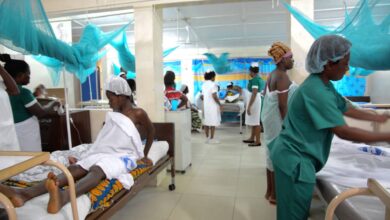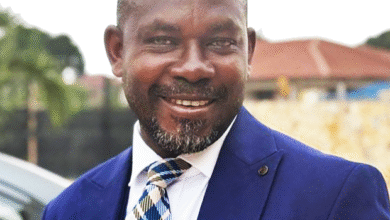India’s Ayurveda Philosophy Resonates with Ghana’s Traditional Healing Practices
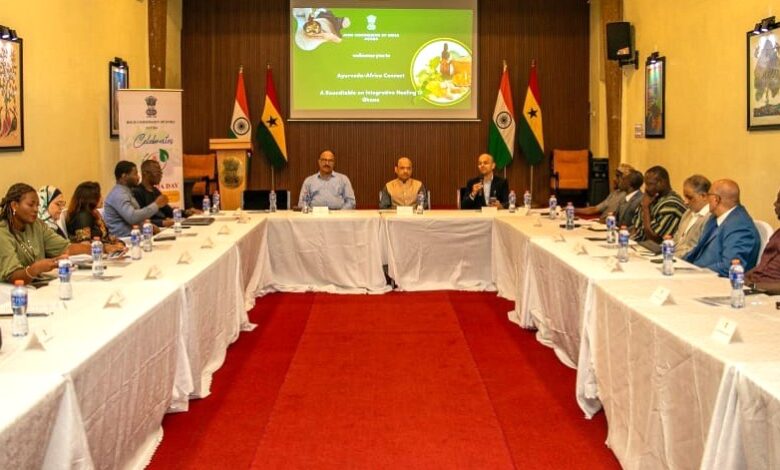
The High Commissioner of India to Ghana, Mr. Manish Gupta, has called for stronger collaboration between Ghana and India in developing a vibrant wellness industry built on traditional healing practices. He believes that the age-old philosophy of Ayurveda, which promotes balance, natural healing, and preventive health, holds valuable lessons for Ghana’s own herbal and traditional medicine systems.
Mr. Gupta made the remarks at a roundtable discussion in Accra to mark Ayurveda Day 2025, organized by the High Commission of India under the theme “Ayurveda–Africa Connect: Integrative Healing in Ghana.” The event brought together Ayurveda practitioners, Ghanaian herbal medicine experts, wellness entrepreneurs, and officials from the Ministry of Health to explore how the two countries could deepen cooperation in traditional medicine and wellness entrepreneurship.
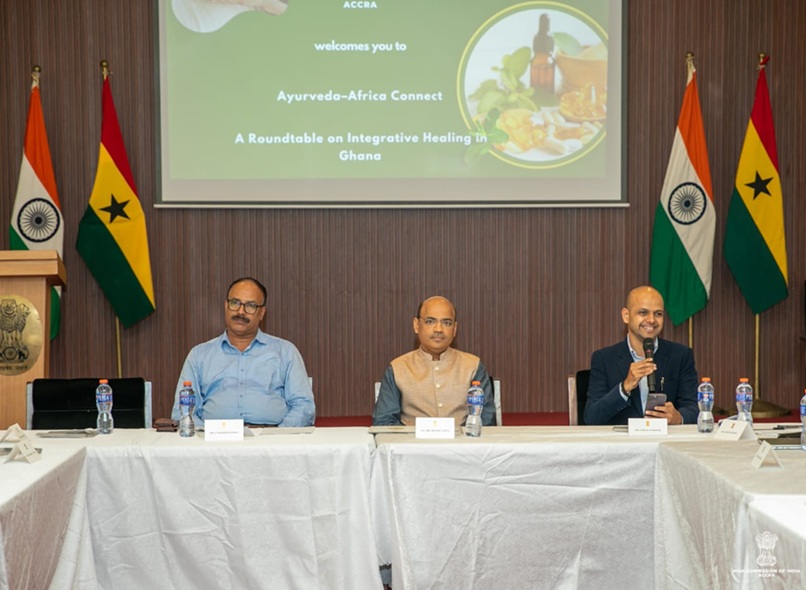
According to Mr. Gupta, Ayurveda is not just a medical system but a way of life that teaches people to live in harmony with nature and themselves. He noted that Ghana’s traditional and herbal medicine culture shares this same foundation, making the two systems naturally complementary.
“The philosophy of Ayurveda resonates deeply with Ghana’s healing traditions,” he said. “Beyond health, it offers opportunities for innovation in herbal products, wellness centers, and holistic tourism that can empower communities and support sustainable economic growth.”
He added that in India, Ayurveda has evolved into a thriving industry that blends tradition with entrepreneurship. From wellness resorts and herbal product exports to training institutions and holistic clinics, the Ayurveda ecosystem supports millions of jobs while promoting healthier lifestyles. Mr. Gupta expressed optimism that Ghana could build a similar model by combining its indigenous healing knowledge with structured policies, education, and private investment.
Participants at the event discussed how to build a stronger framework for collaboration, focusing on policy recognition, education, and wellness innovation. They also explored how regulated trade in herbal and Ayurveda-based products could support job creation, tourism, and small business growth in Ghana.
Representatives from the Ministry of Health and traditional medicine associations agreed on the need for stronger standards and certification to guide practitioners and ensure consumer safety. The High Commission of India also highlighted various scholarship and training opportunities under the ICCR, ITEC, and AYUSH programs, which enable Ghanaians to study Ayurveda and complementary medicine in India.
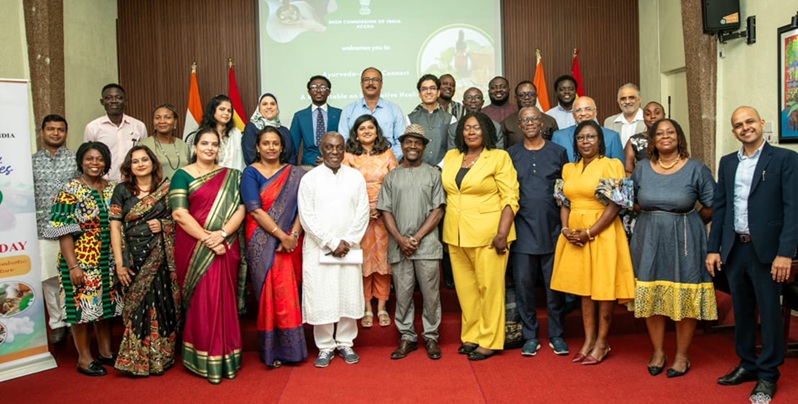
The roundtable concluded with a proposal to establish an Ayurveda–Ghana Working Group that would serve as a platform for cooperation in education, research, and wellness entrepreneurship. The working group is expected to develop frameworks for knowledge exchange, certification, and business partnerships between Ghanaian and Indian institutions.
Mr. Gupta emphasized that the collaboration between Ghana and India in wellness entrepreneurship could create new pathways for youth employment and community development. “Wellness is not only about personal health,” he said. “It is also a business opportunity, a cultural bridge, and a means of national growth. When traditional wisdom is given modern structure and support, it can transform lives and strengthen economies.”
Undoubtedly, such cooperation could help Ghana position itself as a leading wellness destination in West Africa, attracting both domestic and international visitors seeking natural healing, rest, and rejuvenation. With its rich biodiversity, strong herbal traditions, and growing hospitality sector, Ghana stands to benefit significantly from the kind of integrative wellness model that has worked successfully in India.
As Ghana looks to expand its creative and service industries, the emerging wellness economy could become a key pillar of inclusive growth. The call by the Indian High Commissioner may well be the beginning of a partnership that not only heals but also builds prosperity from Ghana’s own roots.

